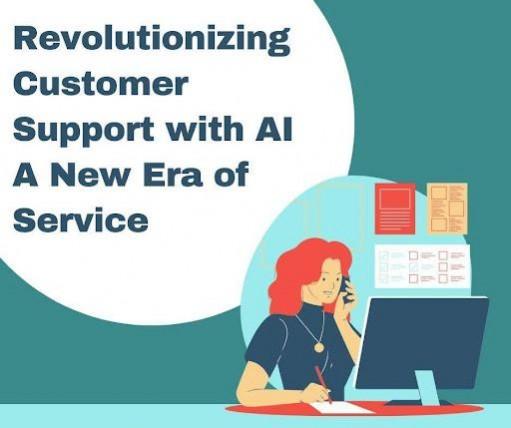
The Age of AI-Driven Customer Support, Sachin Kumar, a prominent expert has extensively analyzed how artificial intelligence is transforming enterprise customer support. His work explores the role of AI in reshaping customer interactions, offering insights into technological advancements and implementation strategies.
Conversational AI: The New Standard
One of the most significant innovations in customer support is the rise of Conversational AI. Advanced natural language processing (NLP) systems have enabled AI-powered chatbots and virtual assistants to handle a vast number of customer queries with high accuracy. These AI-driven solutions effectively reduce response times and enhance customer experience by understanding and processing complex linguistic structures in real-time.
Sentiment Analysis: Enhancing Emotional Intelligence
Modern AI support systems now incorporate sentiment analysis, which interprets customer emotions through text and voice inputs. By analyzing speech patterns, tone, and word choice, these systems detect dissatisfaction, frustration, or urgency in customer interactions. This technology allows businesses to prioritize responses, ensuring that emotionally charged issues receive immediate attention, thus improving customer satisfaction and retention rates.
Hybrid AI-Human Collaboration: The Best of Both Worlds
Despite AI's growing efficiency, human intervention remains essential for resolving complex queries. The hybrid AI-human model enables AI to handle repetitive, routine inquiries while seamlessly transferring intricate issues to human agents. This collaborative approach ensures improved first-contact resolution rates and enhances customer trust by balancing automation with human empathy and expertise.
AI-Driven Multilingual Support: Bridging Global Barriers
AI-powered support systems have significantly improved multilingual customer service capabilities. With the ability to process and respond in over 100 languages, AI eliminates language barriers, making customer support more inclusive and efficient. These systems continuously improve through machine learning, ensuring greater accuracy in translation and contextual understanding.
Scalable AI Architectures: Meeting Growing Demands
To accommodate the rising demand for AI-driven support, enterprises are adopting scalable architectures that enable real-time processing and adaptation. Modern AI frameworks efficiently manage high volumes of interactions, dynamically scaling up during peak demand periods. These robust architectures ensure uninterrupted service availability while optimizing resource allocation.
Cloud-native implementations further enhance flexibility, allowing organizations to deploy AI capabilities across distributed environments without geographical constraints. Edge computing integration reduces latency for time-sensitive interactions, particularly in mobile applications. Microservices-based designs enable targeted updates without system-wide disruptions, facilitating continuous improvement of specific.
Data Privacy and Security: Addressing Key Challenges
While AI-driven customer support enhances efficiency, it also presents challenges related to data privacy and security. Organizations are implementing stringent data protection protocols, including encryption, anonymization, and compliance with global regulations. These measures ensure customer trust by safeguarding sensitive information and maintaining transparency in AI operations.
The Future of AI in Customer Support
The evolution of AI in customer support is far from over. Emerging trends indicate a shift towards proactive support, where AI predicts customer issues before they arise. Additionally, AI-powered self-service portals are expected to become more sophisticated, enabling customers to resolve queries independently. With continuous advancements in machine learning and predictive analytics, the future of AI-driven customer support promises even greater efficiency and personalization.
Emotion recognition capabilities will soon allow AI systems to detect customer frustration and adjust responses accordingly. Integration with IoT devices will enable context-aware support across multiple touchpoints. Voice assistants will evolve to handle complex conversations with near-human understanding. As natural language processing improves, language barriers will diminish, creating truly global support systems.
In Conclusion,Sachin Kumar highlights AI's transformative impact on customer support, demonstrating its potential to optimize efficiency, enhance user experience, and address operational challenges. As organizations continue to refine AI integration strategies, the balance between automation and human interaction will be key to delivering exceptional customer service in the digital age.













